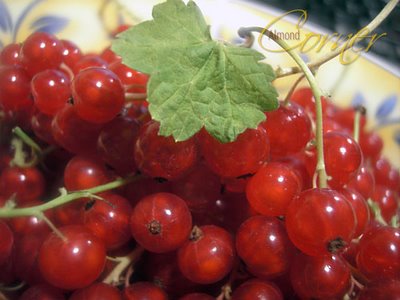 |
| Lyle and I at General Conference |
I've been reading in Mosiah in my scripture study lately (yeah for me, I'm reading my scriptures!) and this week was reading chapter 23 which talks about Alma and his people who after being chased by King Noah's army into the wilderness settle in a land they called Helam. Verses 20-22 tell us:
'And it came to pass that they did multiply and prosper exceedingly in the land of Helam; and they built a city, which they called the city of Helam.
'Nevertheless the Lord seeth fit to chasten his people; yea, he trieth their patience and their faith.
'Nevertheless- whosoever putteth his trust in him the same shall be lifted up at the last day. yea, and thus it was with this people.'
The people of Alma were soon found by an army of Lamanites and ended up being enslaved and ruled by a wicked man named Amulon, a former priest of King Noah, who had joined with the Lamanites and found favor with their King. Amulon put the people of Alma in bondage and had task masters watching over them. They were even forbidden to pray. Their afflictions were very great.
 One thing I find interesting in this story is that these were righteous people. They were following the commandments and the Lord still allowed them to be put in a horrible and scary situation. Then when they cried to the Lord for deliverance, he responded; but he didn't take them out of bondage at first. Instead, he eased their burdens so that even though they were still practically slaves, they were able to bear it well. The Lord 'did strengthen them that they could bear up their burdens with ease, and they did submit cheerfully and with patience to all the will of the Lord.' It was only after this experience that the Lord finally delivered them out of the Lamanites control. The Lord allowed them to suffer, to be chastened, though they were righteous.
One thing I find interesting in this story is that these were righteous people. They were following the commandments and the Lord still allowed them to be put in a horrible and scary situation. Then when they cried to the Lord for deliverance, he responded; but he didn't take them out of bondage at first. Instead, he eased their burdens so that even though they were still practically slaves, they were able to bear it well. The Lord 'did strengthen them that they could bear up their burdens with ease, and they did submit cheerfully and with patience to all the will of the Lord.' It was only after this experience that the Lord finally delivered them out of the Lamanites control. The Lord allowed them to suffer, to be chastened, though they were righteous.For much of my life I understood the word 'chasten' to mean getting in trouble for doing something bad. But I love the real definition:
1. to correct by punishment or suffering (to discipline or purify)
2. to prune of excess, pretense, or falsity
3. to cause to be more humble and restrained
I added bold to my favorite words. This gives me a much broader sense of the real meaning of being chastened.
Last year for Mother's Day an infertile friend gave me a book, 'Finding God in the Garden' by Brent and Wendy Top. I was surprised at first. I am NOT a gardener. In fact, I kill plants. Not on purpose, but they still end up dead regardless of my good intentions. A couple of years ago we got 3 bamboo shoots and within a couple of months 2 of them died. Bamboo isn't exactly the hardest plant to take care of. The remaining shoot has survived because Lyle took over it's nurturing. Regardless, I've found this book very interesting. Though I don't garden, I still enjoy the important parts of gardening being likened to spiritual growth. I was reading this week the entry called 'A Wise and Loving Gardener'. They talk about pruning their 'babies' each spring and refer to it as a science. They state that in order to get certain results from a plant, pruning is required. Knowing where, when and how to prune, you can stop growth, encourage branching, create new branches, produce better fruit and many other things. Then they relate pruning to a spiritual matter: the Lord as a gardener pruning us.
'We have often thought how thankful we are that the Lord is an expert, eternal Gardener who knows perfectly how to prune His 'babies'. Pruning is absolutely essential for certain plants (and people) if you love and care about them and want them to achieve their full potential and better serve your purposes. Such trimming shapes and strengthens and beautifies. It directs growth to create bigger and better fruit and flower production. Cutting back also protects a plant from growth in places and in ways that would cause damage to it or other plants around it. It gets rid of useless and even harmful dead growth that robs parts of the plant of the awakening light of the sun. New growth can then sprout in places that have never seen life. So, too, can Heavenly Father shape and fit His children, not only to be useful and experience maximum growth and blessing in this life but also to become beautiful, perfected, and exalted in His own celestial garden....
'The greatest Gardener knows we cannot be or do all things. He knows perfectly our individual needs and purposes. He knows what has to go and what should be kept in order for us to be fruitful and accomplish our mission. He knows when it is time to transplant us and exactly where we will blossom best. If we fail to trust Him and yield to His perfectly practiced hand, we will end up producing weak, useless, or distorted fruit and thereby, perhaps, deprive others of opportunities to become all that they could be.' (bold added to emphasize the parts that are thought provoking to me).
The idea that cutting something back and causing it pain in order to help its growth, blossoming and bearing of fruit later on is sometimes a hard one to accept. It's difficult when you feel like a clipped and small stump to see the beautiful tree you will end up becoming. But I love being reminded that though my branch of motherhood has been cut away, the nourishment from the Son is being directed into other areas of my life that have more need.
Hugh B. Brown's parable 'The Gardener and the Currant Bush' helps provide a beautiful reminder of the necessity of pruning.
'In the early dawn, a young gardener was pruning his trees and shrubs. He had one choice currant bush which had gone too much to wood. He feared therefore that it would produce little, if any, fruit.
'Accordingly, he trimmed and pruned the bush and cut it back. In fact, when he had finished, there was little left but stumps and roots.
'Tenderly he considered what was left. It looked so sad and deeply hurt. On every stump there seemed to be a tear where the pruning knife had cut away the growth of early spring. The poor bush seemed to speak to him, and he thought he heard it say:
"'Oh, how could you be so cruel to me; you who claim to be my friend, who planted and cared for me when I was young, and nurtured and encouraged me to grow? Could you not see that I was rapidly responding to your care? I was nearly half as large as the trees across the fence, and might soon have become like one of them. But now you've cut my branches back; the green, attractive leaves are gone, and I am in disgrace among my fellows."
'The young gardener looked at the weeping bush and heard its plea with sympathetic understanding. His voice was full of kindness as he said, "Do not cry; what I have done to you was necessary that you might be a prize currant bush in my garden. You were not intended to give shade or shelter by your branches. My purpose when I planted you was that you should bear fruit. When I want currants, a tree, regardless of its size, cannot supply the need.
The irony that I would have 'been barren' and that in order to 'bear fruit' as the Lord has planned means the cutting of motherhood from my life is not lost on me. I don't know what my life would have been had motherhood gone exactly as I had expected it to. But I can see the growth in my life in places that, I realize, started with the pain of the pruning. And though I want to be a mother, I want to be the kind of person the Lord is making me into even more. I'm reminded of words from the hymn, "Savior, Redeemer of My Soul":
In perfect harmony with Thee.
Make me more worthy of Thy love
And fit me for the life above.
I'm thankful that the Lord has helped ease my heartache though he has not taken away the trial which causes it. Maybe one day I'll be able to 'submit cheerfully and with patience'' instead of 'grumbling and half resentfully accept' this pruning, and who knows, perhaps this struggle will be lifted someday as well.












